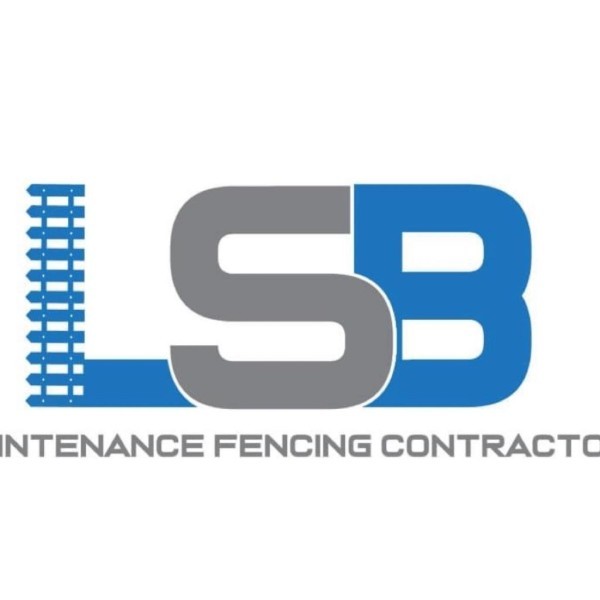Garden Fencing in Brownhills
Search Garden Fencing in places nearby
Introduction to Garden Fencing in Brownhills
Garden fencing in Brownhills is more than just a way to mark the boundaries of your property. It serves as a crucial element in enhancing the aesthetic appeal, security, and privacy of your garden. Whether you're a seasoned gardener or a newcomer to the world of horticulture, understanding the various aspects of garden fencing can help you make informed decisions that will benefit your outdoor space for years to come.
The Importance of Garden Fencing
Garden fencing plays a vital role in defining the space and providing a sense of enclosure. It not only keeps unwanted visitors at bay but also offers a canvas for climbing plants and a backdrop for your garden's design. In Brownhills, where gardens are cherished, a well-chosen fence can significantly enhance the overall look and feel of your outdoor area.
Security and Privacy
One of the primary reasons homeowners in Brownhills opt for garden fencing is to ensure security and privacy. A sturdy fence acts as a deterrent to intruders and provides a private sanctuary where you can relax without prying eyes. With various heights and styles available, you can choose a fence that meets your specific needs.
Aesthetic Appeal
Beyond functionality, garden fencing adds to the visual appeal of your garden. With a range of materials and designs, you can select a fence that complements the architecture of your home and the natural beauty of your garden. From traditional wooden panels to modern metal designs, the options are endless.
Types of Garden Fencing Available in Brownhills
When it comes to garden fencing in Brownhills, there is a wide array of options to suit different tastes and requirements. Each type of fencing offers unique benefits and can be tailored to fit the specific needs of your garden.
Wooden Fencing
Wooden fencing is a popular choice due to its natural appearance and versatility. It can be painted or stained to match your garden's theme and is available in various styles, such as picket, panel, and lattice. Wooden fences are ideal for creating a rustic or traditional look.
Pros and Cons of Wooden Fencing
- Pros: Natural look, versatile, easy to customise.
- Cons: Requires regular maintenance, susceptible to weather damage.
Metal Fencing
Metal fencing, including wrought iron and aluminium, offers a durable and low-maintenance option. It is perfect for those seeking a modern or industrial aesthetic. Metal fences are known for their strength and longevity, making them a wise investment for long-term use.
Pros and Cons of Metal Fencing
- Pros: Durable, low maintenance, strong security.
- Cons: Can be expensive, limited privacy.
Vinyl Fencing
Vinyl fencing is a contemporary choice that combines durability with a clean, polished look. It is resistant to weather and pests, making it a low-maintenance option. Vinyl fences are available in a variety of colours and styles, allowing for personalisation.
Pros and Cons of Vinyl Fencing
- Pros: Low maintenance, weather-resistant, versatile.
- Cons: Higher initial cost, limited colour options.
Choosing the Right Fence for Your Garden
Selecting the right garden fence involves considering several factors, including your budget, the purpose of the fence, and the overall design of your garden. Here are some tips to help you make the best choice for your Brownhills garden.
Assessing Your Needs
Before choosing a fence, determine what you need it for. Is it for privacy, security, or purely decorative purposes? Understanding your primary goal will guide you in selecting the appropriate material and style.
Considering Your Budget
Your budget will play a significant role in your decision-making process. While some materials may have a higher upfront cost, they might save you money in the long run due to their durability and low maintenance requirements.
Matching Your Garden's Aesthetic
Your garden fence should complement the existing landscape and architecture of your home. Consider the colours, textures, and styles that will harmonise with your garden's overall theme.
Installation and Maintenance of Garden Fencing
Proper installation and maintenance are crucial to ensuring the longevity and effectiveness of your garden fence. Whether you choose to install the fence yourself or hire a professional, understanding the process can help you achieve the best results.
DIY Installation vs Professional Installation
Deciding between DIY installation and hiring a professional depends on your skills, time, and budget. While DIY can save money, professional installation ensures precision and expertise, especially for complex designs.
Maintenance Tips for Longevity
Regular maintenance is essential to keep your garden fence looking its best. This includes cleaning, painting or staining, and checking for any damage. Different materials require different levels of care, so be sure to follow the manufacturer's recommendations.
Legal Considerations for Garden Fencing in Brownhills
Before installing a garden fence in Brownhills, it's important to be aware of any legal requirements or restrictions. This ensures that your fence complies with local regulations and avoids potential disputes with neighbours.
Understanding Local Regulations
Check with the local council to understand any regulations regarding fence height, materials, and placement. This will help you avoid any legal issues and ensure your fence is compliant.
Neighbourly Considerations
It's always a good idea to discuss your fencing plans with your neighbours, especially if the fence will be on a shared boundary. This can prevent disputes and foster good relations.
Environmental Impact of Garden Fencing
When choosing a garden fence, consider its environmental impact. Opting for sustainable materials and practices can help reduce your garden's carbon footprint and contribute to a healthier planet.
Sustainable Materials
Look for fencing materials that are sustainably sourced, such as FSC-certified wood or recycled metal. These options are more environmentally friendly and support responsible forestry and recycling practices.
Eco-Friendly Practices
Consider using eco-friendly paints and stains, and ensure proper disposal of any waste materials. These practices can help minimise the environmental impact of your fencing project.
Enhancing Your Garden with Fencing
Garden fencing can be more than just a boundary; it can enhance the beauty and functionality of your outdoor space. Here are some creative ways to incorporate fencing into your garden design.
Incorporating Plants and Vines
Use your fence as a support for climbing plants and vines. This not only adds greenery but also softens the appearance of the fence and creates a more natural look.
Creating Focal Points
Choose a decorative fence design to serve as a focal point in your garden. This can draw attention to specific areas and add an element of interest to your landscape.
Frequently Asked Questions
What is the best type of garden fencing for privacy?
Wooden panel fencing is often considered the best option for privacy due to its solid construction and height options.
How do I maintain a wooden garden fence?
Regularly clean your wooden fence, apply a protective stain or paint, and check for any signs of damage or rot.
Can I install a garden fence myself?
Yes, if you have the necessary skills and tools. However, for complex designs or large areas, hiring a professional may be advisable.
Are there any restrictions on fence height in Brownhills?
Yes, local regulations may dictate maximum fence heights, especially for front gardens. Check with the local council for specific guidelines.
What are the most durable fencing materials?
Metal and vinyl are among the most durable fencing materials, offering long-lasting performance with minimal maintenance.
How can I make my garden fence more environmentally friendly?
Choose sustainable materials, use eco-friendly finishes, and ensure proper disposal of waste materials to reduce environmental impact.












